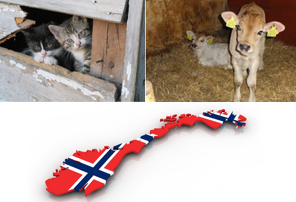Reading Time: 3 minutes read
Kaveh Rashidi is a doctor, born in Norway of Iranian parents. He is a Norwegian citizen and has lived all his life in Norway. He identifies as 100% Norwegian.
One day in mid-August, he was walking in the streets of Oslo with noise-cancelling headphones on. A woman who he didn’t know pointed at him and said something. He took off his headphones and said “Excuse me?”
“Go back to Pakistan,” she said. “We don’t need doctors like you here.”
He was speechless. She just walked on.
Rather than letting it pass, Rashidi chose to share that experience on Twitter. His simple story was met by a Twitter storm (see here), which he later followed up with an article called “Am I Norwegian?” in one of Norway’s leading national papers, Aftenposten. Result? Another Twitter storm (see here).
So what did people write in response? Most –indeed, the vast majority– wrote in his support: Of course he is Norwegian, and we are lucky to have him! Many wrote that they felt ashamed on behalf of the woman who had accosted him.
A few writers, however, felt that that woman had had a valid point. And some of these people used figurative language to express their agreement, for example:
“If a cat has kittens in a barn, you don’t call them calves.”

How do you argue with that? How do you resist a metaphor?
Here’s what the world of Twitter did:
- Humor: “How wonderful that we are human and not farm animals!”
- Rationality: “That was a very strange comment and comparison.”
- Teacher talk: “That was an odd comparison. If you are going to use animals as a metaphor, you should use a cow from Norway and from another land, for example Japan. Then you call the “children” calves no matter where they are born, even if they were born in your living room.”
- Ridicule: “Ha, ha, that must be the most stupid comparison of all time.”
- Anger: “Delete your account, you a**h****”
- Analogy: “But with that logic, there are almost no Americans, because they all descend from immigrants. And we are probably all Africans because that is where mankind is believed to have emigrated from to start with.”
- Rejection of the premise: “Species and nationality. Apples and jumpropes.”
- Irony: “Great job. If a cow calves, you don’t call a barn cat an iceberg.”
- Increduality: “Goodness!!!! That anyone can say something like that. Incredibly disrespectful and sad.”
Among other functions, metaphor can be used to argue, to explain and to persuade. It is a tool that can be harnessed by students, politicians, journalists, parents, teacher…yes…by everyone, including by people advancing offensive views and policies. Studying the various ways we have of resisting metaphor – that is, of reframing a given conceptualization that is not in line with our values or beliefs– may therefore shed light on effective means of fighting xenophobia and other forms of ignorance.
Check out this blog post for more about resistance to metaphor!

This blog post was published earlier for MetNet Scandinavia, here.
